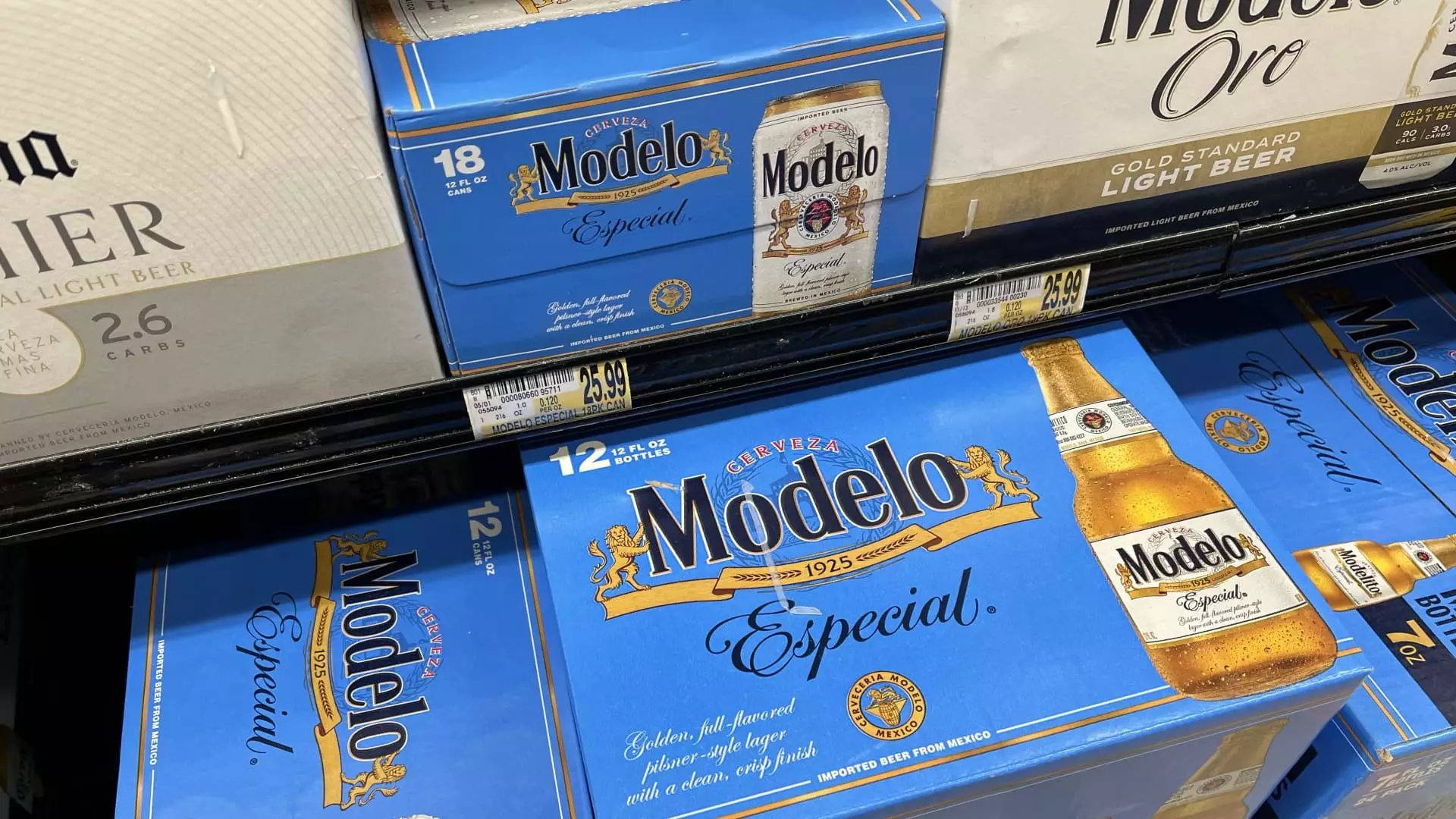Recent developments surrounding Constellation Brands serve as a stark reminder of the volatile intersection between politics and commerce. The company’s latest earnings report hinted at greater distress than anticipated, sparked by a trenchant tariff of 25% on imported beer which the Trump administration recently announced. While investors often celebrate quarterly earnings in the face of uncertainty, the anticipated medium-term outlook can evoke a far more apprehensive sentiment. For a brand predominantly dependent on its Mexican beer imports—Modelo, Corona, and Pacifico, which collectively influence 78% of net sales—these tariffs represent more than just financial adjustments; they symbolize a looming challenge that could ripple across the beverage industry.
Delving into Earnings Performance
On one hand, Constellation managed to surpass Wall Street’s expectations with fourth-quarter earnings of $2.63 per share against the projected $2.28. Revenue growth also saw a positive trajectory, reaching $2.16 billion, slightly exceeding the forecast. However, this temporary applause from investors may soon wither as the long-term forecasts signal disarray. For fiscal 2026, management preemptively warned of earnings per share in a range lower than analysts estimated, indicating a troubling outlook for a company striving to maintain its market position amidst fluctuating governmental policies.
It’s easy to focus on the fleeting numbers—after all, a single quarter of upbeat earnings can overshadow more significant worries. Still, Co-founder Robert Sands’ reassurances clash with the stark reality of these impending tariffs. Will investors remain buoyant as the impact of these duty hikes gradually materializes? A cautiously optimistic statement only jeopardizes consumer trust and investor relations in the long term.
Strategic Shifts in Portfolio Management
In a bid to recalibrate its business model, Constellation is divesting its “mainstream” wines and redirecting its focus towards premium brands that command higher price points. Such strategic pivots should signal innovation and adaptability in response to shifting consumer preferences, but one wonders if this is merely a reactive measure to external challenges. The sale of the Svedka vodka brand, coupled with a disproportionate reliance on beer sales, points towards an identity crisis embedded within the company’s operational philosophy.
While packaging wine and spirits as premium products may strengthen short-term sales, such changes must not distract from a cohesive long-term strategy. Is this repositioning truly a forward-thinking approach or an attempt to salvage a sinking ship with outdated navigational tools? Companies must think holistically about their brands and innovations rather than executing knee-jerk changes based on a singular economic phenomenon.
Growth Projections and Future Capital Expenditure
For fiscal 2026, Constellation anticipates muted organic sales growth ranging from a 2% decline to a 1% increase. Projecting such pessimistic figures stands in glaring contrast to initial expectations, signaling a disheartening landscape for growth. Moreover, the revised enterprise sales projections that foresee only a 2% to 4% increase, down from an all-encompassing 6% to 8%, could instigate a panic among stakeholders who once enjoyed a relatively robust ascent. The corporate mindset of growth must shift; stagnation and contraction aren’t simply short-term concerns in today’s landscape.
Furthermore, the impending reduction in capital expenditures—contemplated to be around 40% in fiscal 2027—indicates a stark withdrawal from investment commitments that may curtail the exploration of new venues for expansion. This could limit the brand’s agility in adapting to economic shifts, potentially marginalizing Constellation in an increasingly competitive environment.
A Wake-Up Call for Investors
Add it all up, and the unfolding scenario for Constellation Brands should serve as a clarion call to investors and stakeholders alike. A myopic focus on quarterly earnings could result in a perilous oversimplification of a complex situation dictated by constantly shifting governmental policies, consumer preferences, and market dynamics. The company stands at a crossroads, having to decide whether to take proactive steps that embrace mindfulness in uncertain times, or succumb to complacency amid fleeting victories.
With whisperings of reduced profitability and strategic sidesteps in a diversifying market, the question remains: can Constellation Brands pivot effectively, or will it be swept away in the tide of change? In a world where consumer loyalty is tested and value propositions constantly evolve, a proactive approach is not just recommended; it’s imperative.

